What Doesn’t Kill You Makes You Organic: 2 Close Calls Turn Man To Natural Farming
11 years ago, when he was working in the field, he was bitten by a snake. For more than an hour, the bite was undetected, till he collapsed on the field and couldn’t raise his arm.
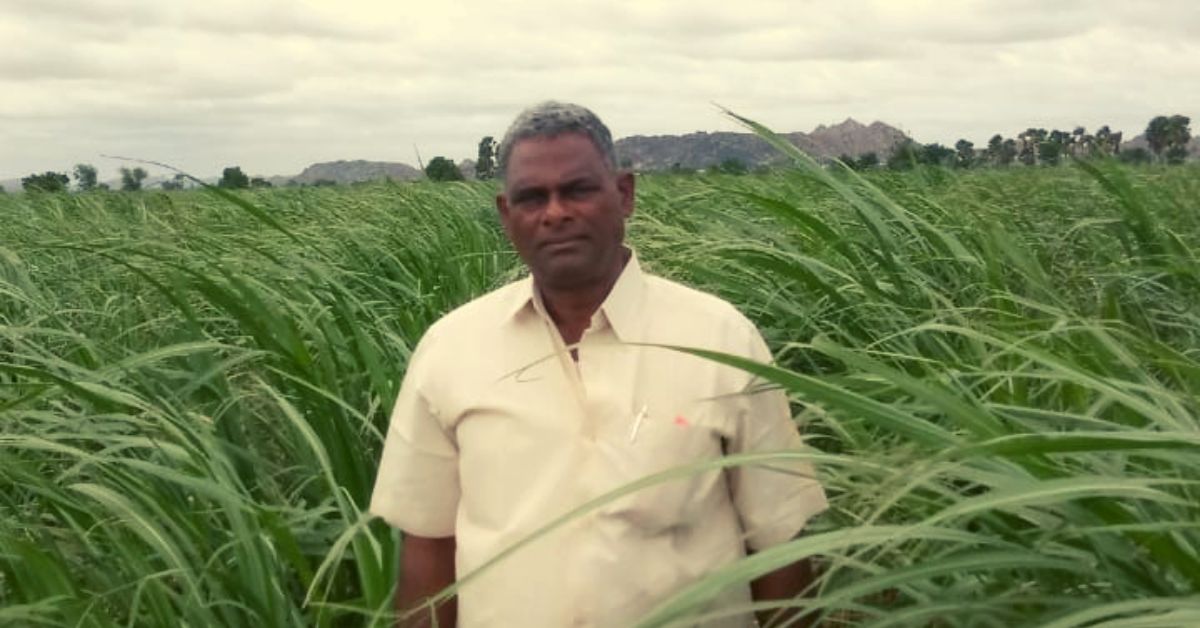
Gummalla Venkata Krishna Bapineedu recalls the day when he escaped the jaws of death in the nick of time.
“11 years ago, when I was working in the field, a snake bit me. For more than an hour, the bite was undetected, till I collapsed on the field and couldn’t raise my arm. I soon started frothing and was rushed to a hospital in the nearest taluk, and later shifted to Hyderabad for treatment.”
Click here to begin your journey into the world of organic food.
Doctors called him lucky. Family and friends heaved a sigh of relief and things seemed fine. But Bapineedu felt distressed, as if something was not right. The problem was, fate was not done with him. The following year, he again stared at the face of death during a harrowing accident. Ironically, he was on his way to the hospital for treatment.
“While travelling on my two-wheeler to board a bus to the city-based hospital for treatment, a speeding vehicle rammed into me. The accident was severe enough to make hospital calls frequent over the next few years,” he shares with a rueful twist to his mouth.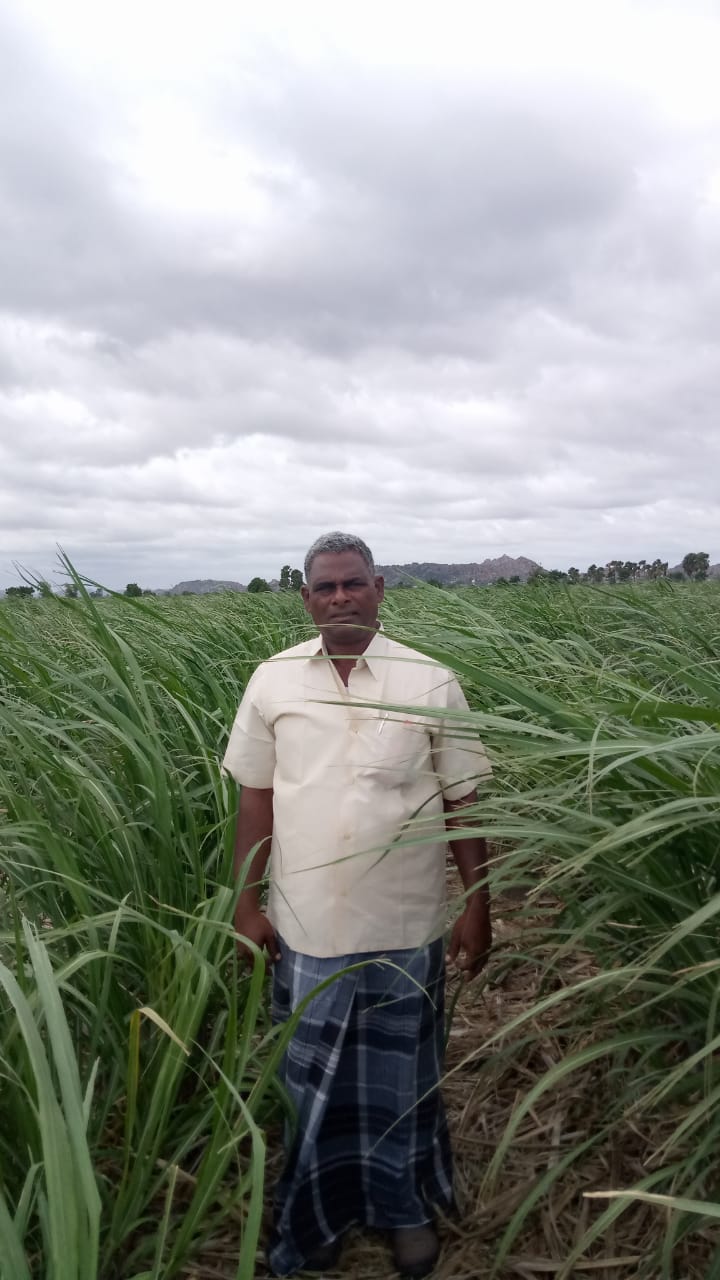
As the saying goes, when the going gets tough . . . . the tough listen to the two close-calls with death and change. For the better. And that is precisely what happened to Bapineedu.
“I could not farm for almost three years due to the accident. I had to give the farm on lease. When I recovered, I decided I had to go organic. It might seem out of the blue and completely unrelated, but farming is my profession. And I am putting food on people’s plates. I had to make my profession meaningful and grow poison-free, chemical-free food.”
Bapineedu’s change of heart sprung from his need to grow visha-mukta aahar (chemical-free-food) for his children and other people. And he did not back down from the change and the challenges that come with it.
He began his journey of natural farming by attending workshops and following the zero-budgeting canons of the famous agriculturist, Subhash Palekar.
Bapineedu has a 30-acre farm where he now grows organic produce, but how the farmland came to him is another interesting story.
He was only five years old when his father decided to leave everything behind after selling their three-acre farm. The family moved from their native village of Rangampeta in East Godavari District of Andhra Pradesh and migrated 750 km away to Budihal Camp in Sindhanur, Raichur district in Karnataka.
All the money that his father had was spent on buying a 30-acre land near this remote village they now called home. It was aloof and cut off from the rest of the world without electricity, water connection or schools in the vicinity.
It was extremely remote and amidst a dense jungle. The main road was five kilometers walk away and we would wade through 1.5 feet deep waters in the monsoons to get to it.
When his father realised the move to Karnataka had deprived his children of primary education he attempted to fill the gap by bringing a private tutor to the village in 1973. He paid Rs.500 per month to him to teach his four kids. He even built a home for the teacher and provided him with the required amenities.
The teacher soon got bored living the village life and left. Later, almost all the siblings became engaged with farming activities except for the youngest brother Sridhar, who got a chance at formal education.
And so, for as long as he can remember, Bapineedu has been working as a farmer. It’s been a journey of four decades. The family managed to buy a tractor in 1986 to develop the entire 30-acres.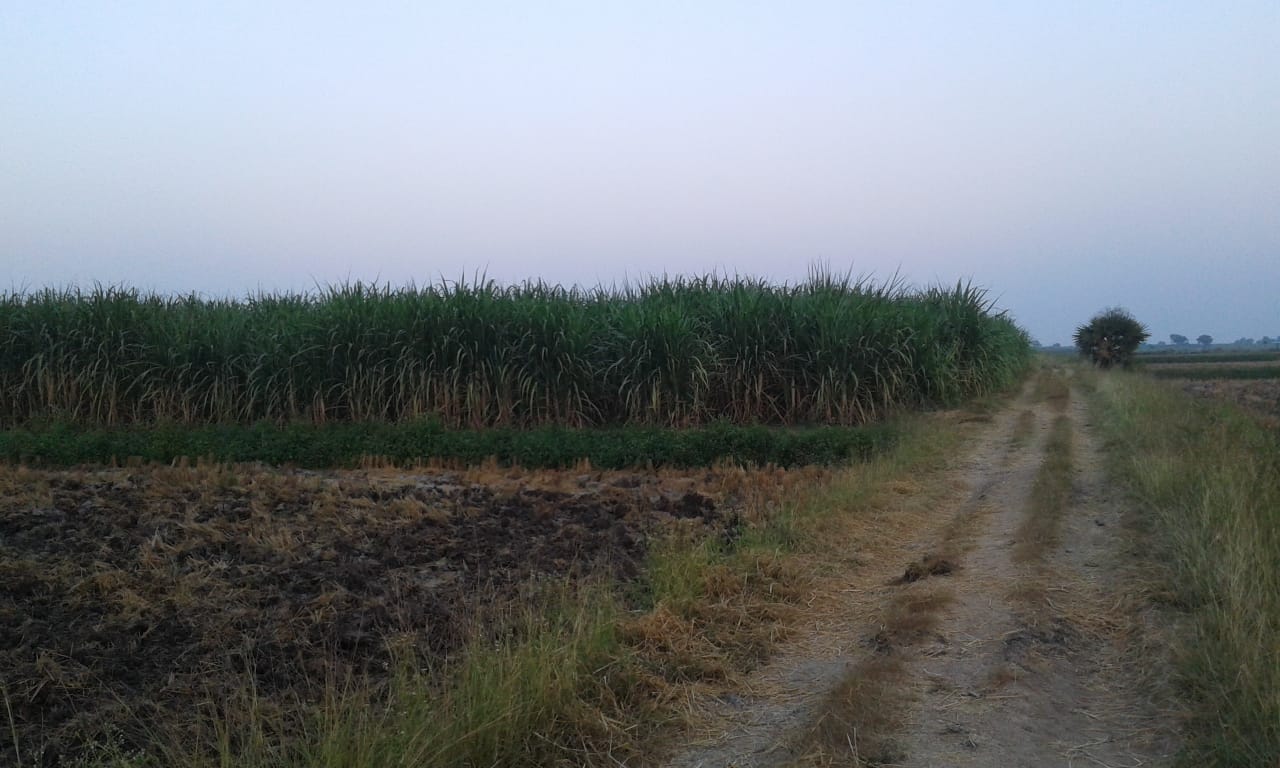
For the longest time, like many other farmers around me, I was a proponent of chemical farming. Back in 1977, we would add two bags of chemical fertilisers to grow paddy on one acre. By 2000, this number rose to eight bags. For many farmers, this number went up to 14 bags per acre by 2018.”
However, nothing can deviate Bapineedu from practicing organic farming now. Used to getting decent earnings through the high yields of chemical farming, he still has to adjust to the losses one faces in the initial years of making the change over. But the farmer hasn’t given up.
“Yes the yield is not as high, but at least it is keeping people healthy and isn’t poisoned.”
In the 30-acre organic farm, he grows paddy on 15 acres, sugarcane on 14 acres, and the rest one acre is dedicated to pulses.
His latest venture that he began only a year ago was producing organic jaggery. With his efforts over the last one year, one acre of his plot helps him yield 40 quintals of sugarcane which is later processed in the small factory he set up on his field at the cost of Rs 10 lakh.
While he has managed to sell 50 quintals of jaggery, his mission is to sell the 500 quintals stored in his godown too.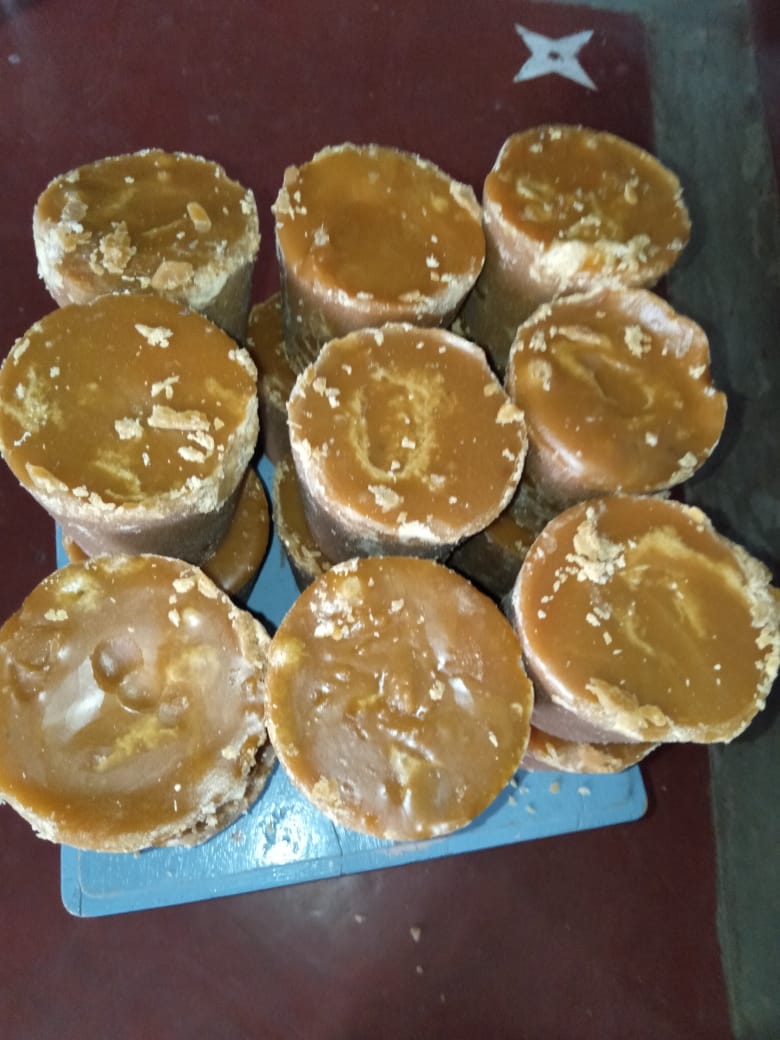
Thoug the progress is slow, he hopes once the certification process is complete, he would receive better rates that would increase the income of his farm to Rs 1 lakh per acre per year.
When asked about the methods he uses to maintain his farm, he informs that he has dug two acres to build a rainwater harvesting bund tank for water supply. Similarly, for enriching the soil, he prepares jeevamrutham (bio-fertiliser) which is administered to the crops through drip irrigation.
Pest attacks are avoided or controlled by spraying concoctions made from garlic, chillies, neem leaves, buttermilk, etc. which are filtered and sprayed onto the crops.
We are farmers, we are the providers of food. It is not just a need but our responsibility to grow poison-free food. Today chemicals are not only ruining our farms, but also the balance of nature. We are threatening the health and future of our children and the generations to follow. We are contaminating our water resources. By doing away with chemicals, we promise our future generations a healthy life and a better environment. It is never too late to change. I can only plead with my farmer brothers and sisters to make this switch.
The man has received a few awards for his work in natural farming including one from his role model, Subhash Palekar and also from the local organic farming association.
“I am not highly educated, but when I was first called on stage by Palekar Sahab to say a few words, I requested every farmer in the crowd, ‘if not your entire field, start with one acre. But start somewhere. Organic farming is the only way to go and save our future generations’.”
Also Read: Mom’s Cancer Makes Farmer Go Organic; Grows Chemical-Free Food & Saves 60% Water
The man is a proud father of two daughters. One of whom maintains his accounts and another who is an IIT & ISB alumnus.
Sowjanya, who supported her father set up the factory says, “He is the most progressive man I have known so far. ”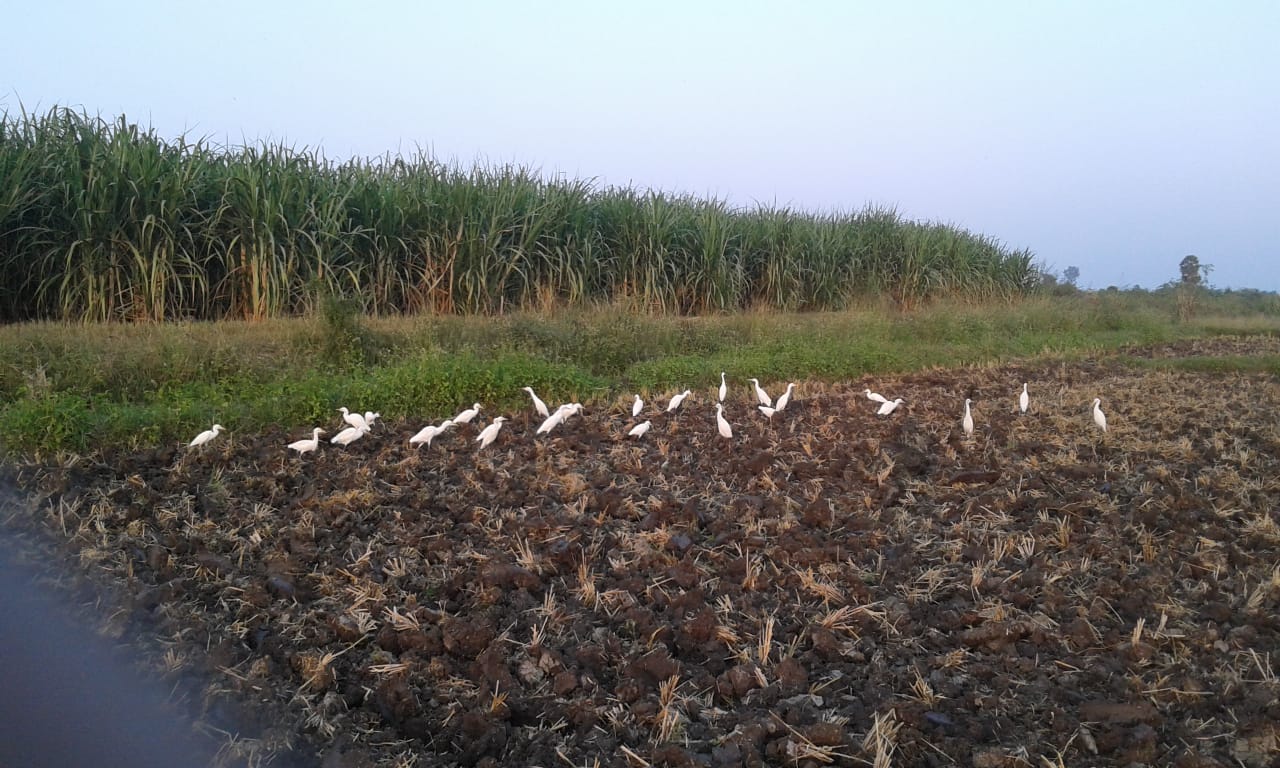
His youngest brother, Sridhar who was instrumental in helping me get in touch with Bapineedu, says, “The fact that he is my eldest brother is not the reason I get inspired by him. His terrific willpower to pursue what he wants with full passion, dedication and commitment makes me look up to him in awe.”
If this story inspired you, get in touch with Bapineedu at 8762296048 or 9481946908
You can also get in touch with him at [email protected]
(Edited by Saiqua Sultan)
Like this story? Or have something to share?
Write to us: [email protected]
Connect with us on Facebook and Twitter.
This story made me
- 97
- 121
- 89
- 167
Tell Us More
We bring stories straight from the heart of India, to inspire millions and create a wave of impact. Our positive movement is growing bigger everyday, and we would love for you to join it.
Please contribute whatever you can, every little penny helps our team in bringing you more stories that support dreams and spread hope.



















